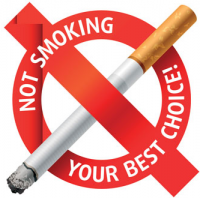Transparency is extremely important to us, so we are letting you know that we may receive a commission on some of links you click on from this page. See our disclaimer.
Harvard Business Review: “Conventional wellness programs rely heavily on education and financial incentives to encourage employees, insurance plan members, or patients to lose weight, stop smoking, and manage their chronic health conditions. Those programs, though intuitively appealing, achieve less success than new, practical approaches derived from behavioral economics, which help us identify and overcome some of the psychological barriers that undercut our health goals. The first step in benefiting from behavioral economics is getting past our reliance on our old ways.”
 “Employers, health insurers, doctors, and health systems increasingly recognize that everyday behaviors are among the most important determinants of health. How we live our lives — whether we smoke, exercise, take our medications, and wear seat belts — substantially determines how long we live and the health we enjoy. Everyone is interested in wellness, yet everyone’s first suggestion for achieving it is education.”
“Employers, health insurers, doctors, and health systems increasingly recognize that everyday behaviors are among the most important determinants of health. How we live our lives — whether we smoke, exercise, take our medications, and wear seat belts — substantially determines how long we live and the health we enjoy. Everyone is interested in wellness, yet everyone’s first suggestion for achieving it is education.”
“That approach seems reasonable, until you think through the implicit assumptions: If we tell people that smoking is dangerous, they will stop. If people are informed about the benefits of exercise, they will go for a run… Health education is critically important, but if we devote resources to educating people about what they already know but don’t do, we may overlook more practical solutions.”
The article notes that “several decades of research reveal that many of our decisions don’t reflect rational choices, but rather irrational thinking that occurs in predictable ways. Experts in behavioral economics have been able to harness this predictability and lead us to the healthful behaviors we seek.”

0 Comments